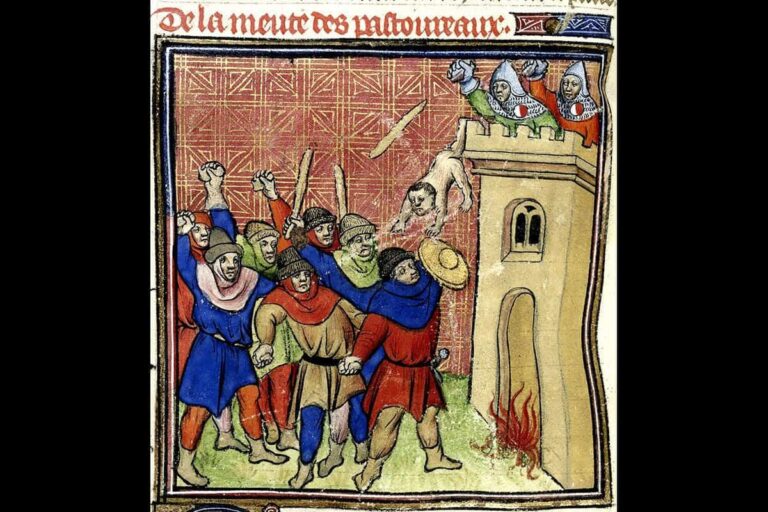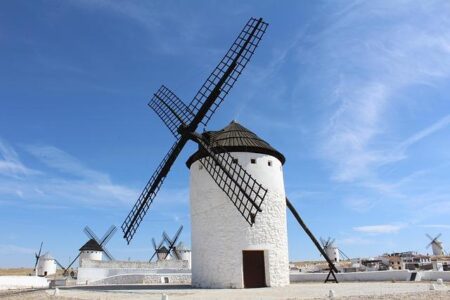In recent years, Spain has witnessed a troubling convergence of historical prejudice and contemporary political discourse, as medieval antisemitic tropes increasingly intertwine with modern anti-Zionist rhetoric. This fusion, highlighted in a report by JNS.org, sheds light on the persistent undercurrents of hostility toward Jewish identity that transcend centuries, now manifesting in nuanced and often overt opposition to Israel. The phenomenon raises critical questions about the boundaries between legitimate political critique and the resurgence of age-old biases within Spanish society.
Medieval Antisemitism Resurfaces in Contemporary Spanish Discourse
In recent years, Spain has witnessed a troubling revival of rhetoric that blends age-old antisemitic tropes with contemporary anti-Zionist discourse. These narratives often recycle medieval myths-such as accusations of ritual murder and conspiratorial control-that were once used to justify widespread persecution of Jewish communities during the Inquisition and beyond. Today, these sentiments are frequently masked as political criticism but carry the same underlying prejudices that have historically fueled discrimination and violence against Jews.
Key features of this resurgence include:
- The portrayal of Jewish influence as a manipulative force in global politics and economics.
- The conflation of Jewish identity with support for Israeli government policies.
- The use of traditional antisemitic symbols in protests and online spaces, often disguised as anti-Zionist imagery.
| Historical Trope | Modern Expression |
|---|---|
| Blood Libel | Accusations of Israeli aggression as ritualistic cruelty |
| Usury | Claims of Jewish control over financial markets |
| Secret Conspiracy | Conspiracy theories about Jewish-Zionist influence in European politics |
Recognizing the fusion of medieval antisemitism with contemporary political debates is critical for Spanish society to distinguish legitimate criticism of state policies from hate speech. Authorities and civil society alike are called upon to address these coded prejudices, ensuring historical lessons inform the protection of minority rights and maintain social cohesion in an increasingly polarized environment.
The Intersection of Historical Prejudice and Modern Anti-Zionist Sentiment
In contemporary Spain, a complex fusion unfolds where echoes of medieval antisemitism reverberate within the contours of modern anti-Zionist discourse. This intertwining manifests not only in rhetoric but also in cultural and political expressions, blurring the line between criticism of Israeli policy and age-old prejudices against Jewish communities. What distinguishes this phenomenon is its deeply rooted historical legacy, where centuries-old myths and stereotypes about Jews resurface, repackaged in the language of political opposition to Zionism.
Key characteristics defining this convergence include:
- Revival of negative tropes: Age-old accusations-such as disloyalty or conspiratorial control-are now embedded within critiques that ostensibly target Israel rather than Jewish people per se.
- Political mobilization: Left-wing and nationalist factions utilize anti-Zionist rhetoric to galvanize support, often overlooking the antisemitic undertones.
- Public demonstrations: Events framed as protests against Israeli policies sometimes serve as platforms for broad antisemitic symbolism and slogans.
| Aspect | Medieval Antisemitism | Modern Anti-Zionism |
|---|---|---|
| Core Narrative | Religious and racial prejudice | Political resistance and critique |
| Common Symbols | Blood libel accusations | Boycott and divestment slogans |
| Methods | Social exclusion and violence | Mass protests and social media campaigns |
| Impact | Jewish expulsions and persecution | Marginalization and fear in Jewish communities |
Addressing the Fusion of Old Biases and New Political Narratives in Spain
In Spain, ancient prejudices have resurfaced under the guise of contemporary political discourse, creating a troubling synergy between medieval antisemitism and modern anti-Zionism. This convergence is not merely coincidental but reflects a broader trend where historical stereotypes are repurposed to challenge the legitimacy of the Jewish state. Rhetoric once confined to the margins now permeates mainstream debates, often disguised as criticism of Israeli policies but echoing age-old tropes of conspiracy and collective guilt. These narratives exploit Spain’s fraught historical memory, selectively invoking the legacy of the Inquisition while conflating Jewish identity with political ideology.
Key aspects of this fusion can be observed in several arenas:
- Political Rhetoric: Left-wing and nationalist parties alike adopt language that blurs anti-Zionism with antisemitic undertones, making it difficult to distinguish legitimate political critique from hate speech.
- Academic Circles: Certain scholarly works revisit medieval accusations in modern Zionist contexts, inadvertently legitimizing discriminatory attitudes under academic freedom.
- Public Demonstrations: Protests often feature iconography and slogans that harken back to historical antisemitic imagery, subtly reinforcing negative Jewish stereotypes.
| Characteristic | Medieval Antisemitism | Modern Anti-Zionism |
|---|---|---|
| Target | Jewish community | State of Israel, Jews as political symbols |
| Common Themes | Economic manipulation, ritual murder myths | Occupation criticism, delegitimization narratives |
| Expression Venues | Religious sermons, royal edicts | Political speeches, social media |
| Impact | Expulsions, pogroms | Social polarization, policy debates |
Insights and Conclusions
As Spain continues to grapple with the legacy of both medieval antisemitism and contemporary political debates surrounding Israel, the fusion of these narratives highlights enduring challenges in addressing prejudice and fostering genuine dialogue. Observers emphasize the need for a nuanced understanding that distinguishes legitimate criticism of Israeli policies from antisemitic rhetoric rooted in historical biases. The developments in Spain serve as a reminder that overcoming entrenched stereotypes requires vigilance, education, and a commitment to confronting intolerance in all its forms.



